Experts
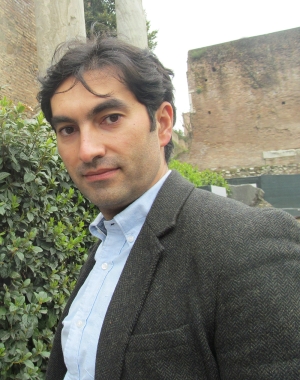
Arthur Atanesyan
Arthur V. Atanesyan is a professor and head of the Department of Applied Sociology at the Faculty of Sociology of the Yerevan State University of Armenia. His area of research and teaching includes political and military sociology, conflict communication, and mass media theories.
Dr. Atanesyan served as OSCE national expert (2012-2014), as a national consultant of the Council of Europe Project on Human Rights and Women in the Armed Forces (HRWAF, 2018-2021), and as a local expert of the 2016-2018 Action Plan on Ensuring Women’s Protection and Equal Opportunities in Defense Sector in the Republic of Armenia. He volunteered in a monitoring group for the prevention of torture and inhuman treatment (OPCAT) at the Ombudsman’s office of Armenia (2010-2019).
His recent publications include Armenia between Russia and the West: Foreign Political Priorities in Public Opinion (Sotsiologicheskie issledovaniya [Sociological Studies], 2022, no. 12, p. 88-100), Women in the Armed Forces and Conflicts: The U.S. Policies and Experience (USA & Canada: Economics, Politics, Culture, 2022, no. 12, pp. 19-37), and Media Framing on Armed Conflicts: Limits of Peace Journalism on the Nagorno-Karabakh Conflict (Journal of Intervention and Statebuilding, 2020, no. 14:4, p. 534-550).
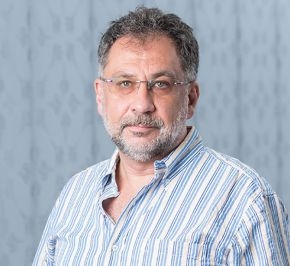
Georgi Derluguian
Georgi Derluguian is a professor of social research and public policy at New York University Abu Dhabi. His area of specialty is in ethnic violence, guerrilla movements and revolutions, particularly in the Caucasus, Central Asia and Africa, as well as post-Cold War globalization. In the past, Dr. Derluguian taught as an Assistant Professor of Sociology and International Studies at Northwestern University. He was also a Visiting professor at Sciences Po and Université de Bordeaux in France, as well as Tallinn Technological University in Estonia and Kyiv State University in Ukraine.
Dr. Derluguian studied at the Institute of Asian and African Studies at Moscow State University from 1978 to 1985, graduating with a master’s degree in African studies with a focus on the modern history of Mozambique. Dr. Derluguian earned his doctorate in history from the Soviet Academy of Sciences in 1990, and that same year moved to the United States to study at State University of New York at Binghamton under noted sociologist Immanuel Wallerstein. He studied Portuguese, English and Xhosa languages. Dr. Derluguian is the author of Bourdieu’s Secret Admirer in the Caucasus: A World-Systems Biography.
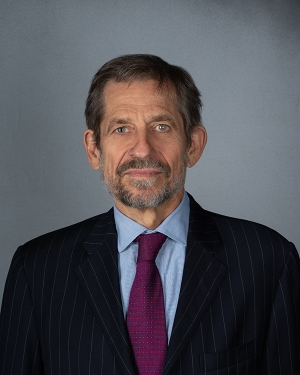
Thomas Graham
Thomas E. Graham is a distinguished fellow at the Council on Foreign Relations. He is a cofounder of the Russian, East European, and Eurasian studies program at Yale University and sits on its faculty steering committee. He is also a research fellow at the MacMillan Center at Yale, where he teaches a course on U.S.-Russian relations. Graham was special assistant to the president and senior director for Russia on the National Security Council staff from 2004 to 2007, during which he managed a White House-Kremlin strategic dialogue. He was director for Russian affairs on the staff from 2002 to 2004.
Graham was a Foreign Service officer for fourteen years. His assignments included two tours of duty at the U.S. Embassy in Moscow in the late Soviet period and in the middle of the 1990s during which he served as head of the political internal unit and acting political counselor. Between tours in Moscow, he worked on Russian and Soviet affairs on the policy planning staff at the U.S. Department of State and as a policy assistant in the office of the under secretary of defense for policy.
Graham serves on the Kennan council of the Kennan Institute of the Wilson Center and on the advisory board of Russia Matters, a project of the Harvard Kennedy School’s Belfer Center for Science and International Affairs with the goal of enhancing the understanding of Russia among policymakers and the interested public. He also serves on the editorial board of the US-Canada Journal of the USA-Canada Institute of the Russian Academy of Sciences.
Graham holds a BA in Russian Studies from Yale University, an MA in History, and a PhD in Political Science from Harvard University.
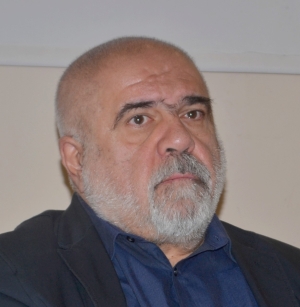
Alexander Iskandaryan
Alexander Iskandaryan is a political scientist, the Director of the Yerevan-based Caucasus Institute. His areas of study are ethnopolitical conflicts, post-Communist transformations and nation building in the former USSR in general and in the Caucasus in particular. He has published and spoken on the emergence of post-Soviet institutions, elites and identities; he has also conducted and supervised research on conflicts, migrations, discourses, media development and cross-border integration. He is also a popular political commentator on television and other types of media.
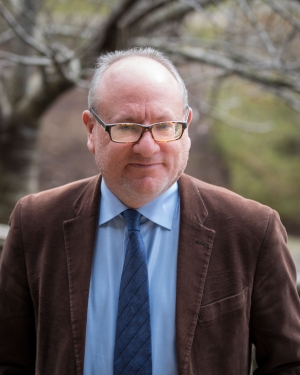
Michael Kimmage
Michael Kimmage is a professor of history at the Catholic University of America. From 2014 to 2017, he served in the Secretary’s Office of Policy Planning at the U.S. Department of State, where he held the Russia/Ukraine portfolio. His latest book was published in April 2020 with Basic Books and is titled The Abandonment of the West: the History of an Idea in American Foreign Policy.
Michael Kimmage specializes in the history of the Cold War, in twentieth-century U.S. diplomatic and intellectual history and in the U.S.-Russian relations since 1991. Professor Kimmage has published four books to date: The Conservative Turn: Lionel Trilling, Whittaker Chambers and the Lessons of Anti-Communism (Harvard University Press, 2009); In History’s Grip: Philip Roth’s Newark Trilogy (Stanford University Press, 2012); Wolfgang Koeppen’s Journey through America (Berghahn, 2012), a German-language travelogue published in 1959 and translated by Professor Kimmage; and The Abandonment of the West: the History of an Idea in American Foreign Policy (Basic Books, 2020). Professor Kimmage has written articles and book reviews for the New York Times, Washington Post, New Republic, Frankfurter Allgemeine Zeitung, the Jewish Review of Books, and the Los Angeles Review of Books. He has been a visiting professor at the Ludwig Maximilian University in Munich and at Vilnius University in Lithuania.
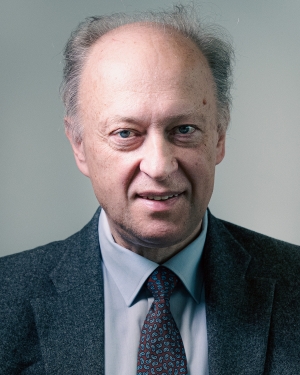
Andrey Kortunov
Andrey Kortunov is the Academic Director of the Russian International Affairs Council. Andrey Kortunov graduated from the Moscow State Institute of International Relations (MGIMO) in 1979 and completed his postgraduate studies at the Institute for U.S. and Canada Studies of the USSR Academy of Sciences in 1982. He holds a PhD in History. Dr Kortunov completed internships at the Soviet embassies in London and Washington, and at the Permanent Delegation of the USSR to the UN. In 1982–1995, Dr Kortunov held various positions in the Institute for U.S. and Canada Studies, including Deputy Director. He taught at universities around the world, including the University of California, Berkeley. In addition, he led several public organizations involved in higher education, social sciences and social development. Since 2011 till 2023, Andrey Kortunov has been the Director General of RIAC. He is a member of expert and supervisory committees and boards of trustees of several Russian and international organizations. His academic interests include contemporary international relations and Russian foreign policy.
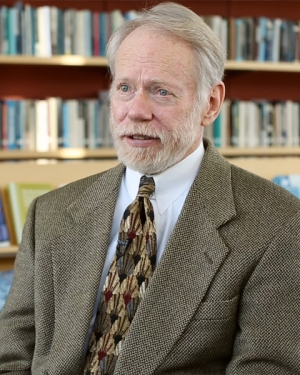
Robert Legvold
Robert Legvold is Marshall D. Shulman Professor Emeritus in the Department of Political Science at Columbia University, where he specialized in the international relations of the post-Soviet states. He was director of the Harriman Institute, Columbia University, from 1986 to 1992. Dr. Legvold’s areas of particular interest are the foreign policies of Russia, Ukraine, and the other new states of the former Soviet Union, U.S. relations with the post-Soviet states, and the impact of the post-Soviet region on the international politics of Asia and Europe. He is currently co-director of the American Academy of Arts and Sciences project, “Meeting the Challenges of a New Nuclear Age,” and co-director of the joint Moscow State University (MSU)-Moscow State Institute of International Relations (MGIMO) MA program, “Public Policy in the Post-Soviet Space.” His most recent book is Return to Cold War (Polity, 2016). He is a fellow of the American Academy of Arts and Sciences and a foreign member of the Russian Academy of Social Sciences.
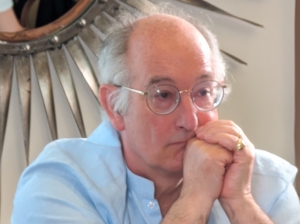
Dominic Lieven
Professor Dominic Lieven graduated first in Cambridge University’s class of 1973 with a BA in History and was a Kennedy Scholar at Harvard in 1973-1974. Subsequently, he has been inter alia a Humboldt Fellow in Germany and a visiting professor at Tokyo University and Harvard. He received his PhD from the School of Slavonic Studies at University College London in 1978.
Professor Lieven was a lecturer, senior lecturer and professor at the London School of Economics (LSE; 1978-2011). He became a fellow of the British Academy in 2001. He was head of the Department of Government from 2001 to 2004 and head of the Department of International History from 2009 to 2011. From there he was a senior research fellow at Trinity College, Cambridge (2011-2019) and has been an honorary fellow since 2019. In 2014, he was awarded the Order of Friendship by the Russian Federation.
He is currently a visiting professor in the Department of International History at LSE. Professor Lieven is also the chair of the board of the Paulsen Programme at LSE, hosted by the Department of International History at LSE.
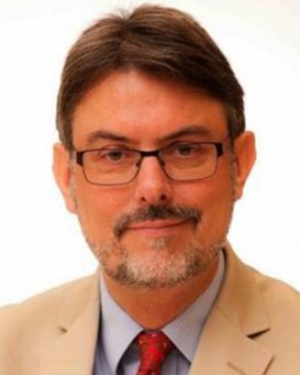
Anatol Lieven
Anatol Lieven is a senior fellow for Russia and Europe at the Quincy Institute for Responsible Statecraft in Washington, DC. He was a professor at Georgetown University in Qatar from 2014 to 2021. He is a member of the academic board of the Valdai discussion club in Russia. He also serves on the advisory committee of the South Asia Department of the British Foreign and Commonwealth Office. He holds a BA and PhD from Cambridge University in England.
His latest book, Climate Change and the Nation State, was published in 2020. An updated paperback edition is appearing in September.
From 1985 to 1998, Anatol Lieven worked as a British journalist in South Asia, the former Soviet Union, and Eastern Europe, and is author of several books on Russia and its neighbors, including Ukraine and Russia: A Fraternal Rivalry.
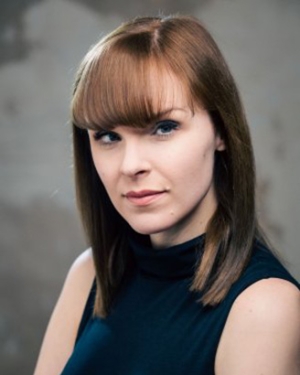
Hanna Notte
Hanna Notte is a Senior Research Associate at the Vienna Center for Disarmament and Non-Proliferation and a Senior Associate (non-resident) in the Europe, Russia, and Eurasia Program at the Center for Strategic & International Studies (CSIS) in Washington DC. She holds a doctorate and MPhil in International Relations from Oxford University and a BA in Social and Political Sciences from Cambridge University. Her work focuses on Russian foreign policy, Russia’s relations with the Global South broadly and the Middle East in particular, Russian approaches to arms control and nonproliferation, and Russian military innovation. Her contributions have appeared in The Nonproliferation Review, Foreign Policy, The Wall Street Journal, The Washington Post, and War on the Rocks, among others. She is the co-author of Death Dust: The Rise, Demise, and Future of Radiological Weapons Programs, forthcoming with Stanford University Press (2023). Notte previously worked with The Shaikh Group, an NGO focused on informal diplomacy in Middle East conflicts, supporting its engagement with Russia. She was a visiting researcher in 2015–16 with the Institute of Oriental Studies of the Russian Academy of Sciences and the Carnegie Moscow Center. She is proficient in Russian and Arabic. Hanna Notte is based in Berlin.
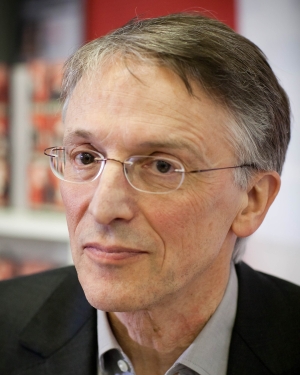
Yuri Slezkine
Yuri Slezkine is a professor of the Graduate School at the University of California, Berkeley; a senior research fellow at St. Edmund College, Oxford; and a member of the American Academy of Arts and Sciences. He has been a fellow at the Hoover Institution, the International Institute at the University of Michigan, the Center for Advanced Study in the Behavioral Sciences, the John Simon Guggenheim Memorial Foundation, and Wissenschaftskolleg zu Berlin. He served as a distinguished visiting professor at Vassar College, an honorary professor at the University of Nottingham, and a visiting professor at the Ludwig-Maximilians University in Munich and Sciences Po in Paris. His book, The Jewish Century (Princeton UP, 2004), has received several awards and has been translated into ten languages. His next book, The House of Government: A Saga of the Russian Revolution (Princeton UP, 2017), was named among the best books of 2017 by the New York Times, Spectator, the Guardian, the Economist, the London Review of Books, and Le Monde, among others, and has been translated into nine languages. His most recent book is a Latvian-language essay entitled Ivar Smilga and the Russian Epilogue of the Latvian Revolution (Rigas Laiks, 2022).
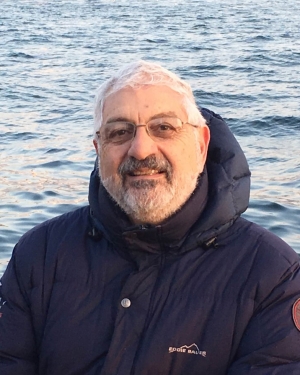
Ronald G. Suny
Ronald Grigor Suny is William H. Sewell, Jr. Distinguished University Professor of History and Professor of Political Science Emeritus at the University of Michigan and Emeritus Professor of Political Science and History at the University of Chicago. He was the first holder of the Alex Manoogian Chair in Modern Armenian History at the University of Michigan, where he founded and directed the Armenian Studies Program. He is author of The Baku Commune: Class and Nationality in the Russian Revolution; The Making of the Georgian Nation; Looking Toward Ararat: Armenia in Modern History; The Revenge of the Past: Nationalism, Revolution, and the Collapse of the Soviet Union; The Soviet Experiment: Russia, the Soviet Union and the Successor States; “They Can Live in the Desert But Nowhere Else”: A History of the Armenian Genocide; Red Flag Unfurled: History, Historians, and the Russian Revolution; Red Flag Wounded: Stalinism and the Fate of the Soviet Experiment; Stalin: Passage to Revolution:and co-author with Valerie Kivelson of Russia’s Empires. He is currently working on a book on the history of the nation-form and the recent upsurge of exclusivist nationalisms and authoritarian populisms: Forging the Nation: The Making and Faking of Nationalisms.
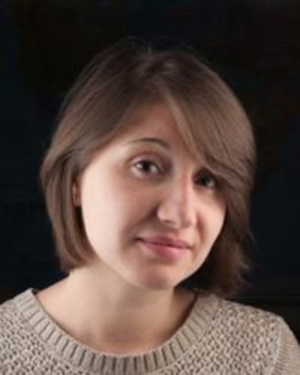
Olesya Vartanyan
Olesya Vartanyan has been working on conflicts in the South Caucasus region for almost 15 years. She is currently Crisis Group’s Senior Analyst responsible for research on regional security issues in Armenia, Georgia and Azerbaijan, with a particular focus on breakaway regions in the South Caucasus – Abkhazia, Nagorno-Karabakh and South Ossetia. Olesya leads advocacy at the national level, in the regional capitals, Europe and the U.S.
Before joining Crisis Group in 2016, Olesya was a journalist, with a particular focus on security and conflict-related issues in Georgia and its breakaway regions. With her field reporting during the 2008 Russia-Georgia war, Olesya contributed to the ground-breaking investigations of The New York Times about the origins of the conflict. Enjoying unique access to Abkhazia, for a number of years she covered crisis developments in this region for Radio Free Europe/Radio Liberty. In 2013, Olesya received the first EU Monitoring Mission’s special prize in Peace Journalism for reporting on missing people in the Georgia-Abkhazia war in the 1990s. She holds master degrees from the King’s College London’s War Department and from the Georgian Institute of Public Affairs’ Media School.
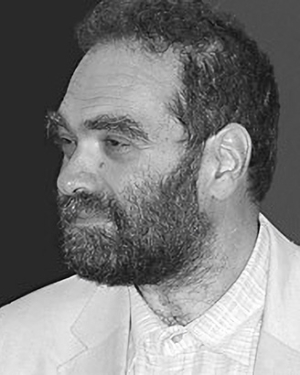
Andrei Zorin
Andrei Zorin is a professor of Russian and a fellow of New College at Oxford University. He is a member of the editorial boards of the journals New Literary Observer, Slavic Review, and Cahiers du Monde Russe. His areas of specialization are Russian Literature and Russian cultural history, especially of the eighteenth and nineteenth centuries. His research includes Russian literature and culture of the eighteenth through the beginning of the nineteenth centuries in the European context, the cultural history of emotions, and the history of the cultured community in Russia and in the USSR. Dr. Zorin graduated from Moscow State University (1978) and completed his dissertation (1983) and habilitation (2000) also at Moscow State University.
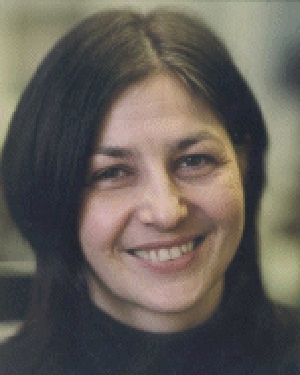
Irina Zorina
Irina Zorina is a lecturer of Russian and translator of literature from English and Scandinavian languages. Since 2004, she has been teaching Prose classes and Russian at the University of Oxford (Faculty of Medieval and Modern Languages and Russian and East European Studies Centre). Among her translations are ” Comrad Pavlik: The Rise and Fall of a Soviet Boy Hero” by Catriona Kelly (from English), “Sommarboken” by Tove Jansson (from Swedish), “Comedy Queen” by Janny Jagerfeld (from Swedish) and others. In 1989 and 1990 she was awarded the prizes of the Swedish Ministry of Culture and the Finnish Literature Society for translation and promotion of Scandinavian literature in Russia. From 1994 to 2004 she was the director of the Russian branch of the international educational non-profit foundation “Civic Education Project”, which contributed to the reforms of higher education in the post - Soviet countries.
